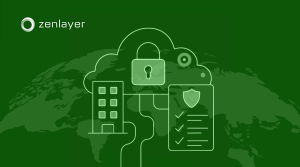One of the most common concerns with implementing Software Defined Networks (SDN) is about regulatory compliance. It’s a significant challenge when your business operates across multiple industries and/or countries with varying compliance rules. While SDN doesn’t magically solve compliance barriers, it does make it surprisingly easier to manage compliance and customize rules for different areas of your business and network.
Small Businesses Under SDN Regulations
Implementing new technology under changing policies is expensive. It’s why many small businesses and startups struggle. In 2015, regulatory upkeep cost more than $1.8 trillion. While there have been some changes to help small businesses and startups, it’s still difficult for them to gain any traction when trying to manage regulatory compliance manually.
Larger businesses don’t suffer quite as much, especially since regulations take many startup competitors out of the picture quickly. However, even large businesses would love a better option for compliance.
Reducing Costs With SDN
It’s important to remember the “software” portion of SDN. Instead of having to work with physical networks, everything’s controlled via software. Without SDN, a business would need auditors to check for compliance, possibly new equipment, and even a network overhaul. All of that is not only costly, but it takes time. In fact, it could take a business months to ensure compliance with a major policy change.
Now, SDN offers a simpler solution. Instead of having to do everything the hard way, businesses are able to define specific rules in the software itself to ensure compliance with existing software and hardware. By working in this more flexible environment, it’s much easier and budget-friendly to make changes. Plus, businesses are compliant within a few days or weeks versus months or even a year.
Maintain Compliance Across Industries
If your business works across multiple industries, regulatory compliance can quickly become a nightmare. For instance, compliance rules for healthcare are different than the financial industry. You could have two separate physical networks and have to manage compliance for each separately. This means buying new equipment and software as rules change for both networks.
Alternatively with SDN, you’re able to set aside network resources based on individual industries. You’re also able to program those resources to meet the unique compliance regulations for those industries. Instead of having to use separate physical servers, you’re able to divide and conquer. Control your networks via software while your hardware sits in data centers across the nation or world.
Ensure Security Across The Network
The ability to manage all hardware centrally provides yet another benefit when it comes to regulatory compliance for SDN. Instead of having to manually apply security updates to different servers and networks, you’re able to do it all from a single location. It doesn’t matter where the hardware is located.
It takes less time than ever to maintain compliance in regards to security updates. This, in turn, also makes your network more secure.
Manage Global Compliance
When you want to have a presence in multiple countries, regulatory compliance becomes even more complex. This is especially true for countries like China that require your servers to be located within the country. Trying to manage networks individually at each data center or even on-site is chaos. Odds are, you’re likely to miss something important that could hurt your business.
Implementing SDN changes things a little. No matter where your servers are located, they can still all tie back to the same network. Of course, this network is managed by software. If you need to make changes to physical hardware, the data center can implement those changes quickly. You’re then able to update policies to ensure compliance. You can do this based on server location, application, and hardware resources.
If you’re currently struggling with regulatory compliance across your network or networks, SDN might be the solution you need. See how our SDN services help you ensure compliance.
Image: Ludde Lorentz







